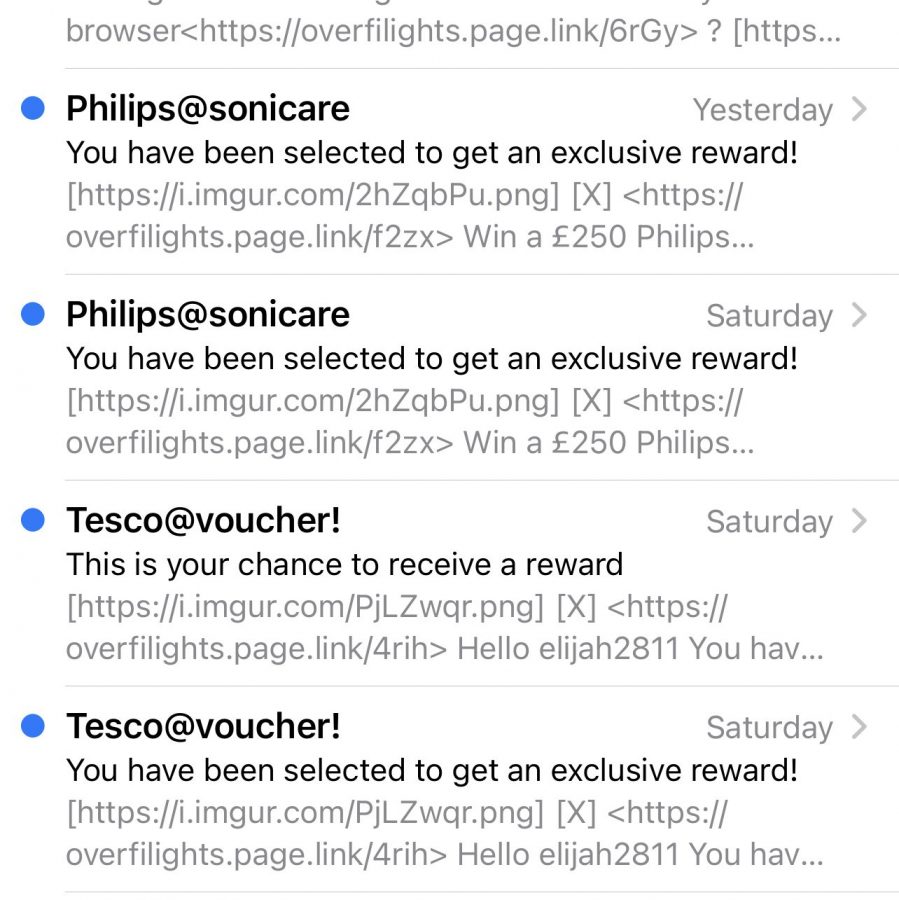Have you ever wondered how you get emails or messages from companies luring you in to offers and discounts even when you have not provided any of your details?
While the world has been focusing on coronavirus for the past two years, a new wave of digital viruses and scams have been lurking on our digital devices.
Cyberattacks involving brand hijacks from platforms such as Instagram and Facebook have increased by 274 per cent during the third quarter of 2021 compared to the same period a year earlier, according to an analysis by Fraud and Payments Trends.
KU students have been involved in multiple cyber-attacks over the past year where expertly crafted texts and emails have been designed to fool recipients into clicking through to a fraudulent brand page.
A third-year business student, Nicholas Pilcher, described his experience: “Just recently, my friends and I kept on getting messages on Instagram saying we had won iPhones. I think almost everyone got one of those. Not to mention, I am constantly getting emails from loads of different brands saying I have won a prize almost every single day.”
He added: “Some of them are obviously fake, but some of them can really trick you and look believable… These scammers are getting really good at making them look real.”

Whether it be chatting with friends and family on social media platforms or communicating via emails, our valuable data is constantly being collected and traded online.
In order for platforms like Google and Meta (Facebook) to provide us with free services, these platforms require us to provide our data in some form of trade off.
This data is sold into an online market where companies exchange information such as our name, email and other details with advertisers.
Shoshana Zuboff, an American author and professor, coined the term “surveillance capitalism” to describe the “economic system built on the secret extraction and manipulation of human data.”
These exchanges and the vulnerability of systems to hackers can inevitably result in our data falling into the hands of scammers who are able to message or email us.
Understanding the issues surrounding internet safety is more important than ever. It would be virtually impossible to stop using the internet, so it is vital to try and reduce the risk from cyberattacks.
Here are some of the most simple and effective way to do so:
- Only provide your personal details to websites which are secure and verified.
- Avoid accessing websites that offer free streaming services which may contain malware and viruses.
- When logging into websites, use a strong password that will provide the best form of protection from fraud or identity theft.
- Use a different password for each site and use a password manager to avoid making it easy to compromise your passwords and sensitive information.
- Keep your social media accounts private rather than public as this will limit the amount of false messaging that can reach your device.
If you do receive any phishing messages, check if the message or email has been sent using unusual fonts or if it comes from a strange email that you do not recognise and don’t click on links in these emails.
Reporting phishing to the National Cyber Security Centre by sending a screenshot will not only reduce the amount of scam emails you receive but will also make you a harder target for scammers.

